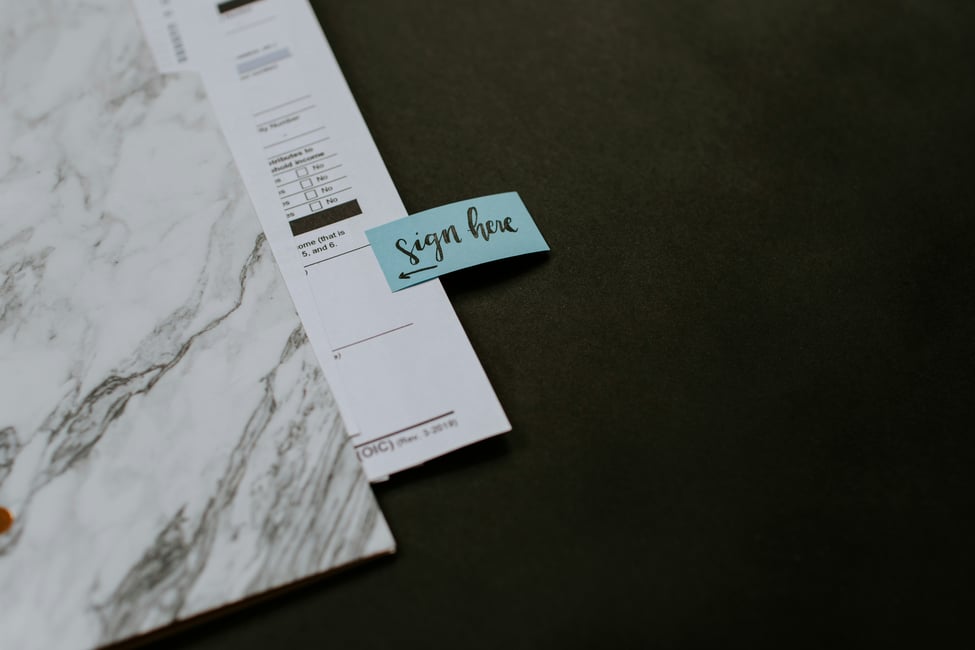Navigating Closing Costs: What Every Home Buyer Should Know
Congratulations! You've finally found the home of your dreams, and now you've got an accepted offer in place. But before you start planning the housewarming party, there's one crucial aspect you need to consider: closing costs. These are the additional fees, charges, and disbursements that you'll be responsible for on top of the purchase price of your new home. Understanding these costs upfront can help you budget accordingly and avoid any last-minute surprises on closing day.
Budgeting for Closing Costs
Closing costs typically range between 1.5% to 3% of a home’s purchase price. While this percentage can vary depending on factors such as location and specific circumstances, it's essential to have a rough estimate in mind as you prepare to finalize the purchase of your new home.
Mortgage Insurance
If your downpayment is less than 20% of your total mortgage, you'll likely need to obtain mortgage insurance. This insurance protects your lender in case you default on repaying your loan. Premiums for mortgage insurance are calculated based on the loan-to-value ratio of your mortgage and are typically rolled into your regular mortgage payment.
Appraisal, Survey, and Inspection Fees
Before finalizing your mortgage, your lender may require an appraisal, land survey, and home inspection. These assessments ensure the property's value, boundaries, and structural integrity, providing peace of mind for both you and your lender. Be prepared to cover the costs of these services, which can range from $400 to $2000 depending on the property and complexity.
Water Quality Inspection
For rural properties or homes with wells, a water quality test may be necessary to ensure the safety of your drinking water. Costs for these tests typically range from $200 to $300, depending on the type and scope of the analysis.
Taxes
For new homes or those that have undergone significant renovations, a Goods and Services Tax (GST) of 5% applies to the purchase price. Buyers can qualify for a GST rebate of up to 36% if the home’s purchase price is under $350,000. For homes valued between $350,000 and $450,000, the rebate amount gradually decreases. However, homes priced over $450,000 are not eligible for this rebate. Remember, it’s necessary to apply to receive the GST rebate.
Additionally, GST is applicable to various services involved in the home-buying process, such as appraisal, inspection, legal advice, notarization, and real estate services.
Provincial Sales Tax (PST) is generally not applicable to these services, with the exception of legal and notary services where PST may apply.
ANTI-FLIPPING TAX: EFFECTIVE JANUARY 1, 2025
Starting January 1, 2025, a new measure aims to curb home flipping and short-term speculation in the real estate market. This tax targets sales of residential properties held for less than two years. Sellers could face a tax of up to 20% on the profit generated from these sales. Specifically, properties sold within the first year will incur a 20% tax, which gradually reduces to zero for properties sold between 366 and 730 days. Certain exemptions are available under specific conditions.
Property Transfer Tax
In BC, the property transfer tax (PTT) is structured as follows: 1% on the first $200,000 of the purchase price, 2% up to $2 million, 3% on amounts between $2 million and $3 million, and 5% on any portion above $3 million.
First-time homebuyers might not have to pay the PTT for homes under $500,000. For homes priced between $500,000 and $525,000, the exemption gradually reduces and completely phases out above $525,000.
Starting April 1st, 2024, changes to the First-Time Home Buyer (FTHB) exemption will affect how Property Transfer Tax (PTT) is applied. For properties valued at less than $835,000, the PTT exemption now covers the first $500,000 of the market value. Any amount over $500,000 is subject to a 2% PTT. For instance, a property valued at $700,000 would incur PTT on $200,000, resulting in a $4,000 tax payment, allowing buyers to save $8,000 by not paying PTT on the initial $500,000.
Properties with a market value between $835,000 and $860,000 qualify for a partial exemption. Properties valued over $860,000 are not eligible for the FTHB PTT exemption.
Additionally, exemptions are available for first-time buyers of new homes priced under $1,100,000. There is a partial exemption between $1,100,000 and $1,150,000, and above that there is no exemption.
Eligibility for the exemption requires you to:
Be a Canadian citizen or permanent resident.
Have lived in BC for the 12 months preceding your purchase.
Have never owned property anywhere before.
Have not previously claimed a first-time homebuyers’ exemption.
The property you’re buying must:
- be in BC
- be used at your principal residence
- be .5 hectares or smaller
- Once you’ve purchased the property, you have to occupy the property as your principal residence for the remainder of the first year
Other Expenses
Additional closing costs may include adjustments for prepaid expenses, home insurance, title insurance, legal or notary fees, utility hook-up fees, new locks, strata fees (for condos or townhouses), realtors' commission, and moving costs. Be sure to factor these expenses into your budget to ensure a smooth closing process.
Planning for a Smooth Transition
As you prepare to close on your new home, it's essential to plan for a smooth transition. Whether you're hiring professional movers or enlisting the help of friends and family, make sure to account for moving costs and any necessary arrangements for the transfer of utilities and services.
In conclusion, understanding and budgeting for closing costs is an essential step in the home-buying process. By being prepared and informed, you can navigate the closing process with confidence and start enjoying your new home sooner. Congratulations on this exciting milestone in your homeownership journey!
.png)
